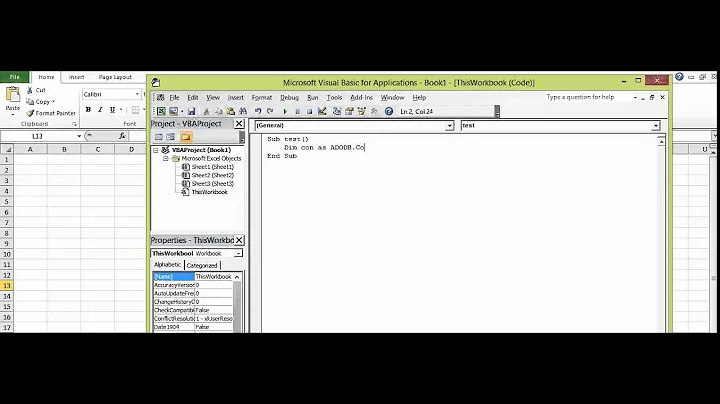__ANDROID__ macro suddenly not defined
Solution 1
If anyone else encounters this issue:
I opened the workspace on another computer (Workspace is in a Dropbox folder), and the problem was still there on the other computer, which could only mean a workspace issue, so I delete the .metadata folder from the workspace.
I had to re-add the projects, but after doing so, everything seems to work now.
Solution 2
Just so you know:
- when you work with
Android.mkfile(s) andndk-build, theANDROIDmacro is predefined (see-DANDROIDextra C flag when building with verbose outputs), - but if you use the Android Standalone Toolchain, then
__ANDROID__is predefined instead.
So I suggest you to use:
#if defined(ANDROID) || defined(__ANDROID__)
/* ... */
#endif
Solution 3
Apparently __ANDROID__ is a specific GCC macro that it supposed to define internally whenever correct options are provided. However, since control over options is largely delegated to NDK, one should not rely on __ANDROID__ macro being ever defined. The compiler behind NDK might not be GCC for all we know (or care). When working with NDK, check for ANDROID.
Edit: clang now also defines __ANDROID__ macro
Related videos on Youtube
La bla bla
Updated on June 04, 2022Comments
-
 La bla bla almost 2 years
La bla bla almost 2 yearsI'm working on an app which uses NDK (all I'm writing happened both on r6b and r8d)
Everything was working fine, and I wanted to start and try debugging my C code.
I followed this http://tools.android.com/recent/usingthendkplugin tutorial, but
NDK_DEBUG = 1tag to my build command, suddenly I started getting errors in the code which didn't go away even after removing that tag, changing from Android 4.2.2 back to 2.2, changing the NDK I was using, or anything else I could think of.The problems happens now inside statements like this
#ifdef __ANDROID__ some cool android code #else some pretty awesome iOS code #endifwhat happens it that the
__ANDROID__is for some reason not define, causing eclipse andndk-buildto try and compile the iOS code instead of the Android'sReverting everything I did didn't seems to have any effect. Restarting eclipse didn't as well. Cleaning the project, completely delete
libsandobjdirectories didn't work too..Any suggestions?
Thanks!
EDIT:
Maybe it's worth adding that the build itself, using ndk-build completes successfully. I think it might be an eclipse issue, but even if so, it still an error and I can't launch the app
Also, just in case, restarting the computer didn't work either.
EDIT 2: The problem exists on another computer running the same workspace over network, my guess was something related to the workspace, so I tried deleting
.metadatafolder and adding the project again.Deleting the
.metedatafolder fixed it the 1st time, but after a few minutes (in which I managed to build and run the app on my tablet) the same issue returned, and deleting the.metadatadidn't workEDIT 3:
Still no go.
However, I can confirm that it's not a project specific problem, as all the projects that has Native support in eclipse now do this.
Other things that doesn't work:
- creating an empty project, adding Native support.
- Completely changing to another unrelated workspace and perform the above tests
- Downloading fresh version of eclipse (juno),
CDT&ADT(was using the eclipse ADT bundle)
-
 La bla bla about 11 yearsHi, thanks for the answer. Unfortunately, doing so didn't change anything. Still the same problem..
La bla bla about 11 yearsHi, thanks for the answer. Unfortunately, doing so didn't change anything. Still the same problem.. -
deltheil about 11 yearsWhat I suggest you is to trigger verbose outputs with
ndk-build V=1and inspect what's going on within your build commands, i.e. is-DANDROIDpresent? -
 La bla bla about 11 yearsThanks, I did it now, and
La bla bla about 11 yearsThanks, I did it now, and-DANDROIDis there. Also, it seems that the C code is compile well, the.solibrary file is being generated. it's as if eclipse itself doesn't recognize these flags, cause even though the c code appears to have error when viewed in eclipse, it compiles as it should


![Cannot run the macro! xlam |The macro may not be available in this workbook[Fix/ Solutions 2021!]](https://i.ytimg.com/vi/aVufWgURwes/hq720.jpg?sqp=-oaymwEcCNAFEJQDSFXyq4qpAw4IARUAAIhCGAFwAcABBg==&rs=AOn4CLDOPNR1GMtHAvrOTCnkjI3s1JfINg)


